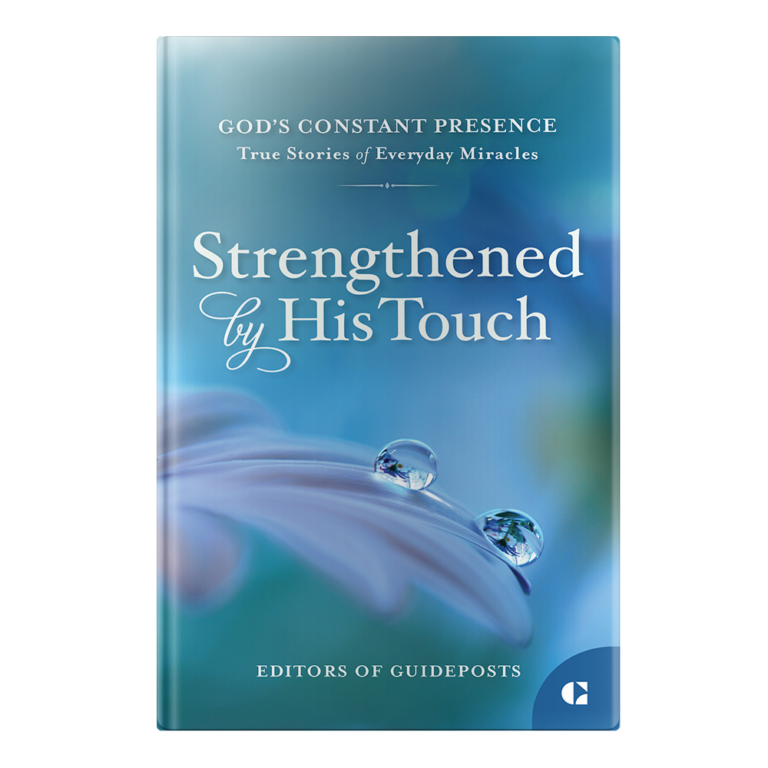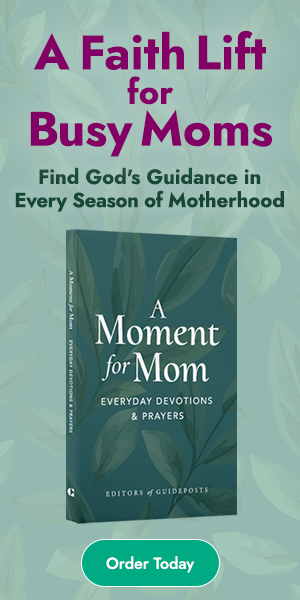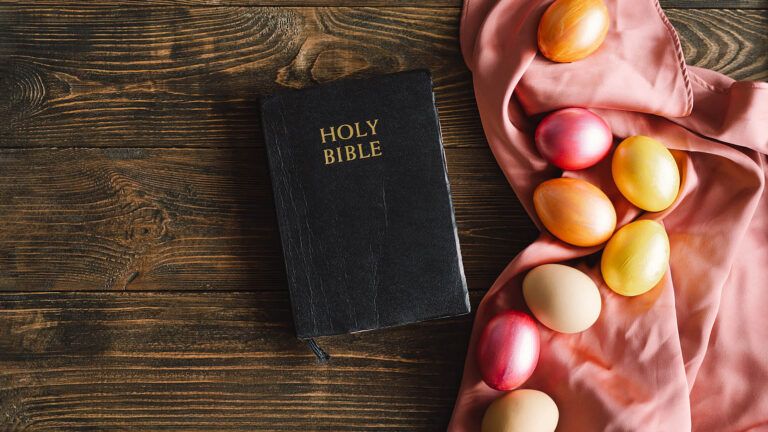I once saw hope save a woman’s life.
Emilie Batisse was 79 years old when she was struck by a hit-and-run driver, and nobody expected her to live. She insisted on staying in her musty, old clapboard house, and it was there that the nurse let me in about a week after the accident.
Mrs. Batisse lay wrapped in plaster from hips to heels, but her voice was firm. “Sit right down to a cup of tea, Norman Peale,” she said. “You’re cold.”
The little room was cluttered with the mementos of a lifetime: a paisley shawl, a child’s drawing of a horse (lavender), shelves of much-loved, much-thumbed books. Mrs. Batisse, I thought, was living in the past. Then, to my surprise, I noticed a row of about ten brand-new poetry books that looked as if they had never been opened. I asked Mrs. Batisse if she cared for poetry, and her answer was one of the greatest testimonies to hope that I have ever heard.
“I love poetry,” she said, “but I haven’t read those yet.” As she looked at them her whole face lit up. “I’m saving them for my old age.”
Start each day with encouragement for your soul. Order Mornings with Jesus 2019
She did, too. She lived to read those books many times. When she finally died at 91, she was planning a trip to Europe.
What is hope? Hope is wishing for a thing to come true; faith is believing that it will come true. Hope is wanting something so eagerly that—in spite of all the evidence that you’re not going to get it—you go right on wanting it. And the remarkable thing about it is that this very act of hoping produces a kind of strength of its own.
Every doctor is familiar with this strength-giving function of hope—so much so that Cornell University’s medical school once conducted an investigation into the effects of hope on the body. After completing the research, Dr. Harold G. Wolff wrote an article for Saturday Review in which he reported as a medical fact that when a man has hope, he is “capable of enduring incredible burdens and taking cruel punishment.”
One of Doctor Wolff’s studies involved the 25,000 American soldiers imprisoned by the Japanese during World War II. These men were subjected to long months of inhuman treatment, forced labor, insult, poor food, filth. Under those conditions, many died, and almost all were sick. But there were a few who, with identical treatment, showed only slight damage from those nightmare months in prison.
Now here is the important thing. Interviews with those men revealed no physical superiority, but simply a far-above-average ability to hope! In prison they drew pictures of the girls they would marry; they designed their future homes; in the middle of the jungle they organized seminars in business management.
Doctor Wolff believes it was hope that kept those boys well—indeed in some cases, kept them alive.
Learn to hope! It’s easy to say, but how do we do it? In the first place, I think we have to know what it is that we hope for.
If that sounds obvious, ask yourself right now what you want most out of life. For prisoners of war, the answer was easy: They wanted freedom. But for most of us, as long as we’re in reasonably good health and know where next month’s rent is coming from, desire has lost its sharp edge, and hope doesn’t work its magic in our lives.
So the first step is to find out what your one strongest desire is. Be honest with yourself and don’t be afraid to say “a larger house,” or “a prettier face and figure.” Then challenge yourself. Pretend that you’re 80 years old and looking back over a life in which your heart’s desire has been granted. Are you satisfied? Perhaps so; but if not, keep challenging yourself until you come up with your answer.
For the hope that you settle on must be your own, not one that you vaguely feel you should have, but one that in reality you do have. This is an area where people often fail in trying to learn the art of hoping. They think they ought to wish for, say, a better world. This is certainly admirable, but to be effective your hope must be fervent enough to govern everything you do. I frankly suspect that most of us would make a greater contribution to others by genuinely hoping for our emotional-physical health than by nobly pining for a better world.
And second, after you’ve defined your own hope, I think it’s important to give it a symbol—something concrete that you can center your thoughts around.
Do you remember the story of Jeremiah and the field of Anathoth? What a marvelous symbol of hope that was! Jerusalem was under seige; almost everyone agreed that the kingdom was doomed—everyone, that is, except the long-bearded old prophet, Jeremiah.
Just as the armies of Babylon reached the gates, Jeremiah taught his people a great lesson in hope. Calling together a large number of witnesses, and with a great show of attention to all the legalities, Jeremiah purchased a plot of land outside the city. For, said Jeremiah, we will be taken away, but we will come back. And during all the long years of captivity, the memory of the field that Jeremiah had purchased in faraway Judah was a symbol of the restoration to come.
In modern times, too, a symbol can give staying-power to hope.
I read once, in the Chicago Tribune, the amazing story of Leo Algimas. Among the thousands herded into concentration camps by the Nazis was Leo’s family. Like the others, they endured incredible hardships, but because they had a symbol for their hope they never slipped into the despair that engulfed so many.
What do you suppose this symbol was that gave them such courage? It was a tiny piece of paper torn from a box of chocolates made in Chicago. This particular candy company prints a little American flag on the bottom of all its boxes, and that was the scrap of paper that the Algimas family passed from hand to hand in their barbed-wire enclosure. They looked at it, held it and whispered, with eyes shining, about the army of liberation that was coming.
A symbol is not the same thing as positive proof. The Algimas family did not know that the Allies would win the war. In fact, the war news given to the prisoners was edited strongly in favor of the Germans. Hope seems to have little to do with proof. Emilie Batisse had no evidence that she would get well; it was difficult to see how the Hebrews would ever see Jerusalem again, yet they went on hoping. They were like the White Queen in Alice in Wonderland.
“One can’t believe impossible things,” said Alice to the Queen.
“I daresay you haven’t had much practice,” replied the Queen. “When I was your age, I always did it for half an hour a day. Why, sometimes I believed as many as six impossible things before breakfast.”
And symbols help us to fix our minds on the “impossible.” The greatest symbol that the world had ever known was also the hardest to believe. A tiny baby sleeping in the manger of a stable was supposed to signal the kingdom of God on earth.
For the hope of the world, what a wonderful symbol! Hope has nothing to do with the odds and logic of the situation. Few would have believed the baby of this humble Jewish couple would change the destiny of mankind. But we know today that that is the precise thing that happened.
And He can change your personal destiny, too. Define what it is that you hope for, ask for it in His name, and no matter how impossible it may seem, the coming year is the year for your hope to start coming true.






